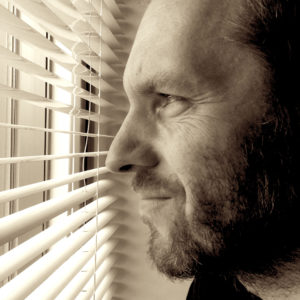
 Germany
Germany
 Czech-Republic
Czech-Republic
 Italy
Italy
 Portugal
Portugal
 Belgium
Belgium
English-Japanese simultaneous interpretation
2
Sat
17:00 - 19:00
Instituto Cervantes de Tokio
Auditorium
EUNIC Japan’s panel discussion at the European Literature Festival is dedicated to the 30th anniversary of the fall of the Berlin Wall, which resulted in the dissolution of the bipolar world order. Since then, collective identities and the self-image of nations have changed and are experiencing new twists and turns and we still don’t know the impact of all the changes. Overcoming boundaries does not only mean the physical walls, but also walls in one’s mind, and the change of values and attitudes. What role does this play in the work of European authors? What happened to the promise of freedom that accompanied the dissolution of the blocks? What stories do the writers tell us, what are their hopes and fears for Europe – 30 years after the fall of the Berlin Wall.
 Organised by: EUNIC Japan
Organised by: EUNIC Japan

©Ambra Durante
Thomas BRUSSIG
Thomas Brussig was born in Berlin in 1964. He made his debut as a novelist in 1991 with Wasserfarben, followed by Helden wie wir (1995), which won him international acclaim. His books have been translated into over 30 languages worldwide, and he is known not only for his novels but also for his play and film scripts. In 2000, he received, together with Leander Haußmann, the German Film Award for Best Screenply for the film Sonnenallee. Other awards include the Carl Zuckmayer Medal in 2005, and the German Comedy Award in 2012 for the screenplay to the film Stankowskis Millionen.

Pavel BRYCZ
Pavel Brycz was born in 1968 in the Czech town of Roudnice nad Labem. Prosaist, lyricist, publicist and scriptwriter. A graduate of Prague’s Drama Academy. He writes books for adults as well as for children. Among other, for I, City he was awarded the Orten Prize in 1999, and in 2004 he received as the youngest recipient ever, the Czech State Prize for Literature. In English, his work has appeared in the anthology Daylight in Nightclub Inferno (Catbird Press, 1997). In 2014 he published a novel – odyssey about a middle-aged man from Central Europe Muž bez ženy není člověk (Man without a woman is not a man). His book Co si vyprávějí andělé? (The angels alight every night,2011) has been translated in Japanese. His latest book The biggest man in the world (2017) is dedicated to the Czechoslovak legionnaires. Currently, he works as a teacher of Czech language, literature and creative writing. Pavel Brycz is also a president of Knižní Klub Literary Prize committee.

©Chiara Ciccocioppo
Helena Janeczek
Helena Janeczek was born in Munich in 1964 in a Polish Jewish family, moved to Italy over 30 years ago and writes in Italian. Her latest book, La ragazza con la Leica [The Girl with the Leica] (2017) is a non-fiction novel depicting the photographer Gerda Taro, Robert Capa’s partner, who died very young in the course of the Spanish Civil War. With this novel, Helena Janeczek won the Premio Strega 2018, the most important Italian literary prize. Her books are translated in several languages. In English, Europa Editions published The Swallows of Montecassino (2013) and The Girl with the Leica (2019).

©hiroki kobayashi
Valter Hugo MÃE
Born in Angola in 1971, Valter Hugo Mãe is a Portuguese language writer and artist who achieved public recognition after being awarded, in 2007, the José Saramago Prize in Literature for the novel O remorso de Baltazar Serapião. In 2012, he won the Portugal Telecom Literature Award for the novel A máquina de fazer espanhóis. A poet and prolific fiction writer, he is also an accomplished musician and visual arts artist who contributes to various literary, arts and music publications in Portugal. A publisher, he has edited a number of literary anthologies for Quasi Press and co-edits the literary magazine Apeadeiro.

Johan LAUWEREYNS
Johan Lauwereyns (born in Antwerp on 13 May 1969) is a writer and scientist. He works as a cognitive neuroscientist at the Kyushu University in Fukuoka, Japan, where he specializes in the voluntary control of attention and decision making. As a multilingual poet, he gained an international reputation for innovative work. Lauwereyns has published single-author volumes of poetry in his native language, Dutch, and in Japanese and English. He has received several prizes and nominations for his work in Dutch most notably the VSB Poetry Prize2012. According to the Flemish Literature Fund, his “analytical approach of poetic subjects produces a remarkable effect: funny, incisive and unsettling all at once. It is a poetry of crackling brain cells”.

小野正嗣 ©講談社
Moderator
Masatsugu ONO
Masatsugu Ono (b. 1970) maintains a steady output of fiction while working as a professor and researcher of Francophone literature. After doing graduate work at the University of Tokyo, Ono earned his Ph.D. at the University of Paris VIII. In 2001, he published his first novel, Mizu ni umoreru haka (The Water-Covered Grave), which won the Asahi Award for New Writers. His second novel, Nigiyakana wan ni seowareta fune (Boat on a Choppy Bay), won the Mishima Yukio Prize, and in 2015 he received an Akutagawa Prize for his Kyunen-mae no inori (A Prayer Nine Years Ago). In addition to writing other works of fiction such as Mori no hazure de (At the Edge of the Forest), Maikurobasu (Microbus) and Shishiwatari-bana (Lion’s Tread Point), he has also translated works by Èdouard Glissant and Marie NDiaye into Japanese.
Instituto Cervantes de Tokio
Edificio Instituto Cervantes, 2-9 Rokubancho, Chiyoda-ku
Tokyo Metro Yuraku-cho Line "Kojimachi" station, Exit 5, 6 (3 minute walk)
JR / Tokyo Metro Yuraku-cho Line, Nanboku Line / Toei-Shinjuku Line "Ichigaya" station (six minute walk)
JR / Tokyo Metro Marunouchi Line, Nanboku Line "Yotsuya" station, Kojimachi exit (7 minute walk)


